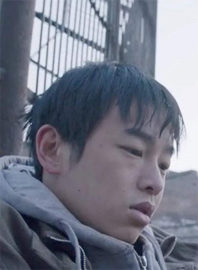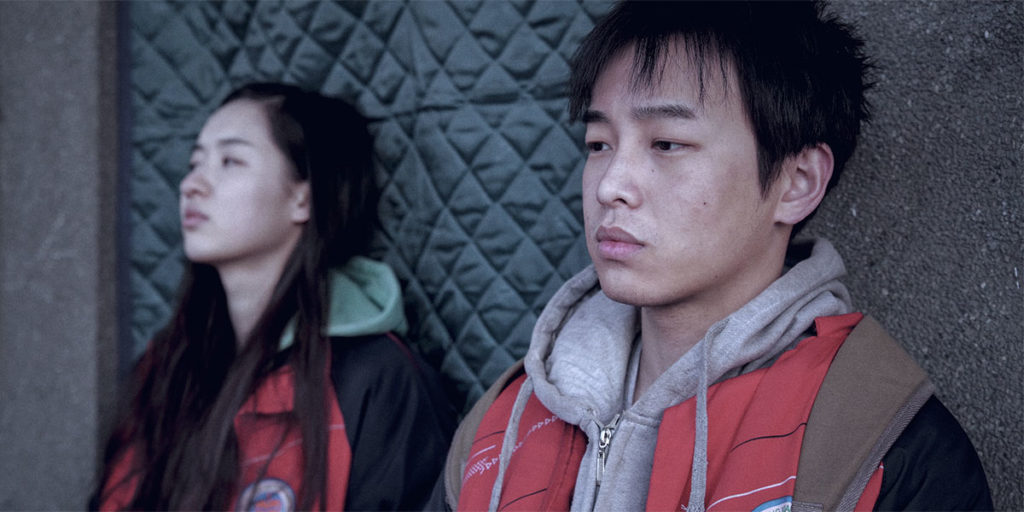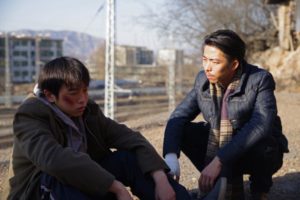
Spectacle and cinema have gone hand in hand since the medium’s inception. The moving image has long been associated with the concept of a “cinema of attractions,” and remains connectively tied to the historical precedents of the Lumiere Brothers and Georges Méliès. Yet, a modern-day definition of the cinematic spectacle too frequently narrows itself down to simply big budget action set pieces, or CGI laden worlds. While none would suggest that films of such an ilk are not spectacular, such a focus on spectacle as it pertains to a specific type of mainstream cinema obfuscates other possibilities for a cinema of attractions.
Hu Bo’s An Elephant Sitting Still (Da Xiang Xi Di Er Zuo) is a film with its own peculiar form of spectacle. Namely, for this film the spectacle is a spectacle of duration, with the final run time clocking at a bladder-busting 234 minutes, or just short of four full hours. Artistically driven, Hu’s film tells four interweaving stories across the span of one day in the decaying outreaches of unnamed Northern Chinese city. It is here that schoolboy Wei Bu (Peng Yuchang) lives in a cruel world of domineering fathers and sneering bullies, alongside his old neighbour Wang Jin (Lin Congxi) and his crush Huang Lin (Wang Yuwnen). Meanwhile, gang violence runs rampant, with the brooding Yu Cheng (Zhang Yu) as one the local chapters most prominent members.
The lore of An Elephant Sitting Still is destined to go beyond the film’s elephantine length. This is, and ultimately will remain, Hu’s only feature film. Tragically, the director committed suicide not long after completing post-production. It is difficult to talk about the film’s thematic content without at least referencing this reality. Melancholy is probably the most apt descriptor for An Elephant Sitting Still. There’s an overwhelming sense of despondency that permeates every frame of Hu’s world, from its colour palette that’s a good fifty some odd shades of cement to its reverberating synth score that periodically augments the events as they unfold on screen.

But An Elephant Sitting Still rises far above simply being four hours of misery. There’s a gambit of emotions on screen that courses throughout the film. The actual structure of Hu’s film is notably ambitious, as the film is shot almost entirely in long takes, but long takes in close-up with soft focus. The effect is disorienting, and many of the camera movements are impeccably blocked and designed (and if you’re like me you’ll frequently find yourself mentally questioning just how on earth they pulled them off). By exclusively using long takes, Hu situates the film within the grand traditions of “slow cinema” alongside auteur’s such as Chantal Akerman and Béla Tarr (Hu was at one point a disciple of Tarr’s). The difference between An Elephant Sitting Still and say, Jeanne Dielman, is how way the former crescendos at the end of any given take, frequently to violence both verbal and physical, as if the film itself is releasing a sort of pent-up energy.
Release and escape become heavily sought after within the world of An Elephant Sitting Still. The title itself refers to a legendary elephant that supposedly does nothing but sit still in the far-off city of Manzhouli, where it acts as a sort of mcguffin that the cursed souls strive to abscond to. As an audience member, your payoff is found within the raw feeling of each of these stories. Considering the para-textual realities of this film, you’d expect it to be completely pessimistic. It isn’t. There’s hope here, and never superficially so. If you can see it in a theatre—do so. When else are you going to get to say that you saw a four-hour film shot almost entirely in close-up long takes?
An Elephant Sitting Still kicks off at the TIFF Bell Lightbox tomorrow.
- Release Date: 3/9/2019

